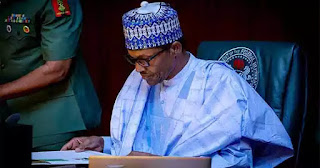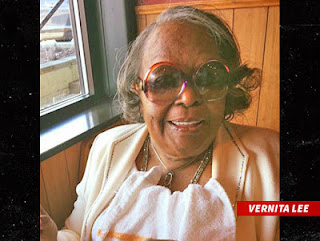November 9: A fateful day in German history
President Frank-Walter Steinmeier in a parliamentary speech Friday called it "an ambivalent day that stands for light and shadow" in the country's turbulent history.
Some many momentous events happened in Germany on November the 9th during the 20th century that it has be known as the country's "Date of Fate". The day carries weight this year as it marks a century since the monarchy, as well as the 80th anniversary of the infamous "Kristallnacht" night of Nazi attacks on the Jews. Here is a breakdown on how history was made four times on November 9th in Germany.
1918: The last Emperor
With Germany on the blink of defeat in World War 1 and a revolutionary mood sweeping the country, the unpopular emperor Kaiser Wilhelm II was forced to abidcate ending Germany's monarchy.
On November 9, 1918 the Social Democrats' deputy chairman Phillip Scheidemann rushed to the balcony of Berlin's Reichstag parliament to announce the birth of what would become the Weimar Republic.
The terms of Germany surrender were deemed so humiliating that historians believe that they helped sow seeds for World War II
1923: Hitler's 'beer hall' putsch
Adolf Hitler, the then relatively unknown Nazi Party Leader, and his cronies tried to seize power with a coup that started in a crowed Munich beer hall on November 9th, 1923.
After climbing onto a chair and firing into the ceiling, Hitler proclaimed the end of "the government of the November criminals", a term used by critics of the 1918 surrender.
But police and soldiers quickly crushed the attempted putsch. and Hitler was arrested. He used his trial to gain notoriety and spread anti-Jewish hatred, and ultimately spent barely nine months in prison.
It was in his cell, he began writing "Mein Kampf"
1938: Night of broken Glass
Nazi tugs torched synagogues, smashed Jewish-owned shops and rounded up Jewish men across Germany on November 9, 1938, in what became known as "Kristallnacht" or the "Night of broken Glass"
The timing was no coincidence -- that evening senior Nazi figures like Joseph Goebbels had riled up crowds at the event honoring Hitler's 1923 coup bid.
At least 90 Jews were killed and 30,000 deported to concentration camps in the outbreak of violence , which historians say ushered in the start of the Nazi's drive to wipe out Jews.
Today, Germans remember the Kristallnacht program by polishing or placing flowers on "Stolpersteine", small brass plagues on cobblestones commemorating Nazi victims. In Berlin last year, 16 plagues were dug up and stolen just before the anniversary, fuelling alarm about resurgence in anti-Semitism.
1989: Berlin Wall Comes Down
The fall of the Berlin Wall in a bloodless revolution on November 9th, 1989 is a joyous milestone in German history, ending 28 years of Cold War separation. But because of the dark chapters associated with the dates in the past,it was considered an ill choice for a public holiday. Germans instead celebrate October 3, 1990 the official reunification of East and West Germany.
The wall came down almost by accident, after communist East German bureaucrat Guenter Schabowski was caught off guard during a live press conference on the question of when exactly new, more relaxed travel rights would take effect.
"As far as I know, ... as of now, " he improvised , sending thousands of East Berliners streaming towards checkpoints where baffled guards eventually opened the barriers.
Some many momentous events happened in Germany on November the 9th during the 20th century that it has be known as the country's "Date of Fate". The day carries weight this year as it marks a century since the monarchy, as well as the 80th anniversary of the infamous "Kristallnacht" night of Nazi attacks on the Jews. Here is a breakdown on how history was made four times on November 9th in Germany.
1918: The last Emperor
With Germany on the blink of defeat in World War 1 and a revolutionary mood sweeping the country, the unpopular emperor Kaiser Wilhelm II was forced to abidcate ending Germany's monarchy.
On November 9, 1918 the Social Democrats' deputy chairman Phillip Scheidemann rushed to the balcony of Berlin's Reichstag parliament to announce the birth of what would become the Weimar Republic.
"Long live the German Republic!" He shouted.Two days later, Germany agreed to sign an armistice that ended the Great War against Allied forces.
The terms of Germany surrender were deemed so humiliating that historians believe that they helped sow seeds for World War II
1923: Hitler's 'beer hall' putsch
Adolf Hitler, the then relatively unknown Nazi Party Leader, and his cronies tried to seize power with a coup that started in a crowed Munich beer hall on November 9th, 1923.
After climbing onto a chair and firing into the ceiling, Hitler proclaimed the end of "the government of the November criminals", a term used by critics of the 1918 surrender.
But police and soldiers quickly crushed the attempted putsch. and Hitler was arrested. He used his trial to gain notoriety and spread anti-Jewish hatred, and ultimately spent barely nine months in prison.
It was in his cell, he began writing "Mein Kampf"
1938: Night of broken Glass
Nazi tugs torched synagogues, smashed Jewish-owned shops and rounded up Jewish men across Germany on November 9, 1938, in what became known as "Kristallnacht" or the "Night of broken Glass"
The timing was no coincidence -- that evening senior Nazi figures like Joseph Goebbels had riled up crowds at the event honoring Hitler's 1923 coup bid.
At least 90 Jews were killed and 30,000 deported to concentration camps in the outbreak of violence , which historians say ushered in the start of the Nazi's drive to wipe out Jews.
Today, Germans remember the Kristallnacht program by polishing or placing flowers on "Stolpersteine", small brass plagues on cobblestones commemorating Nazi victims. In Berlin last year, 16 plagues were dug up and stolen just before the anniversary, fuelling alarm about resurgence in anti-Semitism.
1989: Berlin Wall Comes Down
The fall of the Berlin Wall in a bloodless revolution on November 9th, 1989 is a joyous milestone in German history, ending 28 years of Cold War separation. But because of the dark chapters associated with the dates in the past,it was considered an ill choice for a public holiday. Germans instead celebrate October 3, 1990 the official reunification of East and West Germany.
The wall came down almost by accident, after communist East German bureaucrat Guenter Schabowski was caught off guard during a live press conference on the question of when exactly new, more relaxed travel rights would take effect.
"As far as I know, ... as of now, " he improvised , sending thousands of East Berliners streaming towards checkpoints where baffled guards eventually opened the barriers.




Comments